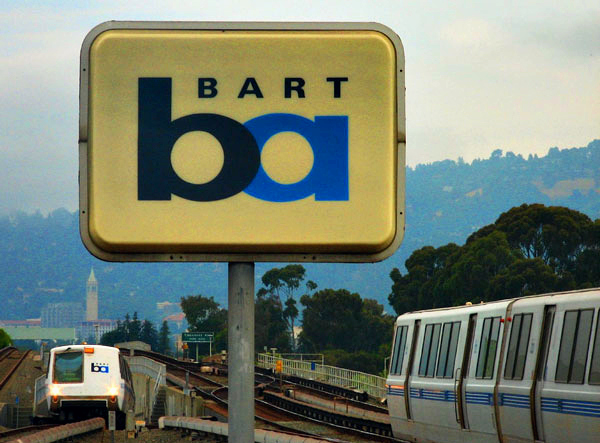By Steven Tavares.
A resolution that falls short of declaring BART a so-called sanctuary for undocumented riders, but is instead labeled a “safety transit policy” was nearly unanimously approved by the BART Board of Directors Thursday.
The original resolution, first proposed by BART Board Directors Lateefah Simon in February, was refashioned to omit any references to “sanctuary cities.” Some board directors feared the transit authority’s oversized reliance on federal funding could be targeted by the Trump administration if the phrase was included in the resolution.
In its place is a resolution that says BART will not allocate any funding or resourcing to the enforcement of federal immigration policy, prohibits employees or BART police from asking riders about their immigration status and withholds federal authorities access to those in its custody for the purpose of immigration violations.
However, BART staff says its police force has not participated with the U.S. Immigration and Customs Enforcement (ICE) on an arrest in five years. In addition, over the past four years, there are no known instances of a rider being asked to provide documentation of their immigration status.
The BART board approved the resolution, 8-1, with lone opposition from Director Debora Allen, who represents Concord, Pleasant Hill, Walnut Creek and Lafayette.
During Thursday morning’s meeting, a number of board directors referenced their own family histories involving immigration to the U.S. “They came to America seeking safety,” said BART Board President Rebecca Saltzman, who represents the Berkeley, San Leandro, El Cerrito and Orinda, said of her family. “There’s so many stories like this of people wanting a safe life.”
BART Police are already short-staffed to ensure the basic safety of it riders, said Board Director Thomas Blalock, let alone to expend resources to help ICE. “Let us have our police protect the property and the riders of BART,” he said.
Some board members, particularly Joel Keller (Pittsburg/Bay Point, Martinez) and Allen, both who represent moderate to conservatives areas of the Bay Area, were put in the spotlight by the inherently progressive notion of a sanctuary jurisdiction.
Keller said the previous inclusion of “sanctuary” in the resolution was a non-starter, due to the risk it posed to losing federal funding. On Thursday, Keller said its removal in the current resolution calmed his fears enough to support it.
Allen, a freshman member of the BART board, was unmoved by the change and voted no despite declaring support for the overall sentiment of the resolution’s intent. Although, she derisively added the resolution provides her colleagues with “great political talking points.”
Instead, Allen said her vote in opposition was due to a clause in the resolution that forbids BART from asking potential employees about their immigration status. She also criticized the resolution for not including other groups such as seniors and the disabled. “I think everyone should be entitled to safe transit,” said Allen.
Simon rebutted Allen’s argument on the immigration status of prospective employees by noting BART will still require proof of Social Security and other legal documents. In passing the resolution, she added, by opposing what she called the “Jim Crow laws of 2017, we were courageous as an institution to do the right thing.”
[divider] [/divider]





